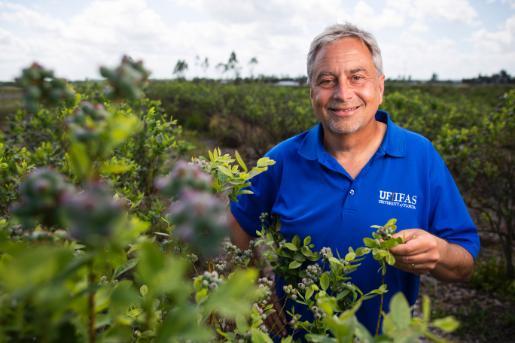By Clint Thompson
Florida’s blueberry crop appears to have dodged the proverbial bullet that was the Jan. 30 freeze event. That’s the outlook shared by Doug Phillips, University of Florida Institute of Food and Agricultural Sciences (UF/IFAS) blueberry Extension coordinator, following weeks of conversing with farmers.
“Of all the growers I’ve talked to across the state, almost all of them, without exception, said they had minor damage at the most. Some had a little bit of damage around the edges of a field or maybe a low spot that’s hard to freeze protect,” Phillips said. “A few folks had a little bit of breakage damage where they made ice and the weight of the ice might have broken some canes; or tipped some plants over. But it was all described to me as pretty minor.”

The accelerated growth of this year’s crop made the sub-freezing temperatures even more threatening. Blueberries in Florida are further along in their development this year due to warmer temperatures in December. The result were so many immature fruit on the bushes that were exposed to temperatures in the 20s. Still, reports indicate that the damage was not as bad as it could have been.
“I reached out to a number of growers that Monday after that weekend with the low temperatures and then I reached out again about a week later because sometimes damage on the fruit or even on the blooms can take a little while to present itself. On that second check, which was about a week after that weekend, again, they reported very minor damage on the fruit,” Phillips said. “That’s when it would have appeared on the fruit, within a few days to a week. It would have been apparent if there were some fruit or some floral damage.”
Phillips said growers should continue with their freeze protection strategies that appear to have been successful already to protect against future frosts.









